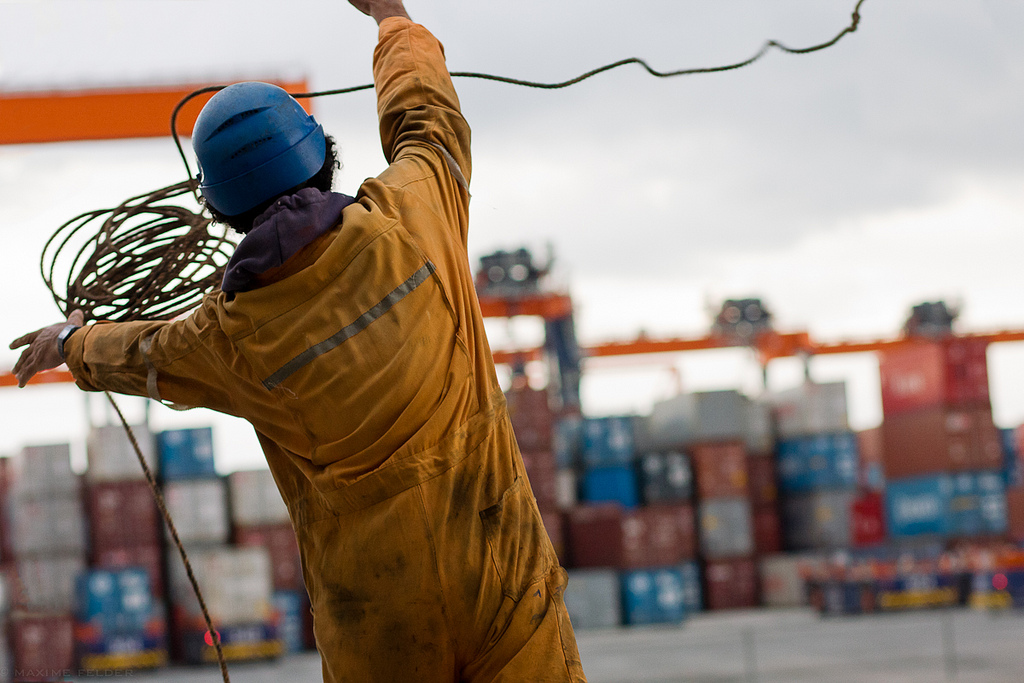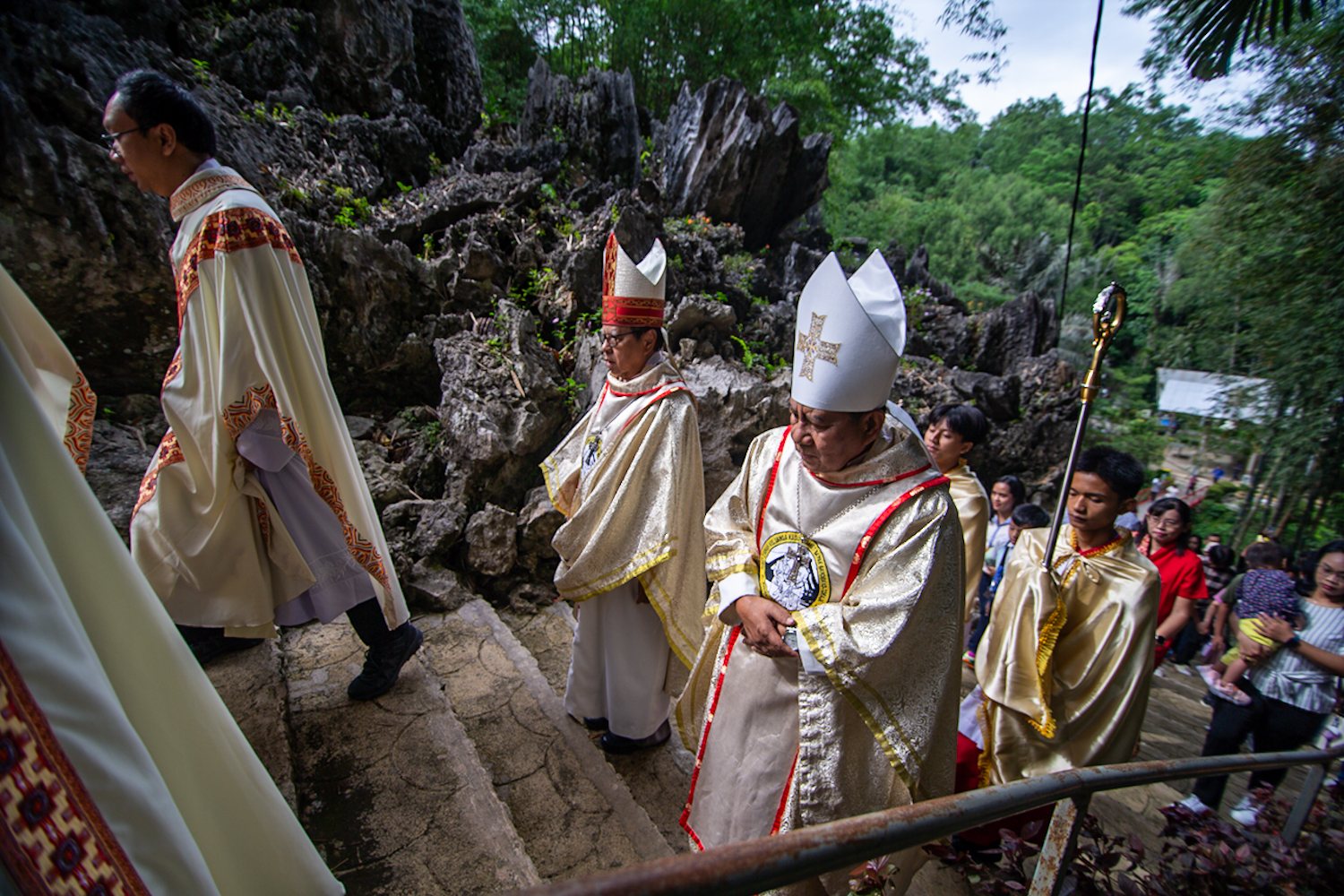Pastoral ministry among the seafarers
Joaquim Magalhães de Castro
Far from loved ones for months on end, in some cases absences that exceed a year, all those who seek sustenance at sea, those who choose to become seafarers, feel more than anyone else the need to support each other. And, prayer may be the anchor that connects them to God, as Victoria G. Sanchez, who leads the Sisters of Jesus Good Shepherd and employee of the Manila delegation of Stella Maris, an international agency of the Catholic Church that offers pastoral assistance to seafarers and their families, regardless of nationality, creed or race.
For 12 consecutive years in the Filipino capital, Sister Victoria is convinced that only through prayer can “those who live in the sea and those who remain on land” be in true harmony, hence the importance of carrying out regular spiritual and charitable activities with the latter.
The testimony of this nun takes on special significance on the occasion of Sea Sunday, which the Catholic Church always celebrates in the second week of July (this year it was on the 9th of July). At least, this is the understanding of Michael Czerny, prefect of the Dicastery for Promoting Integral Human Development. In his last message for Sea Sunday, the Czech cardinal stated: “Sunday is the day of the Eucharist, that is, it is the day of the weekly Easter, and there are many who do not have access to it because they are forcibly removed from their communities. Celebrating the Risen One means not forgetting anyone, not even those who are somewhere in the middle of the ocean.”
On that day, charities such as Stella Maris, The Mission to Seafarers or the Sailors’ Society as well as non-denominational groups, such as the Sea Cadets, organize fundraisers, parades and awareness campaigns about the many aspects of life at sea. It is estimated that 1.6 million seafarers are shipped worldwide, including 400,000 Filipino nationals who send billions of pesos in remittances annually.
Among the most difficult challenges sailors and fishermen face is loneliness, of course, but also pressure from family members to send money home. Added to these factors are premature layoffs due to personal health problems or physical injuries, the ongoing threat of maritime piracy and limitations on fishing licenses. Let’s not forget that the sea is a very dangerous workplace: in the last 10 years, 1,036 ships have sunk all over the world.
The team at the Stella Maris in Manila not only provides spiritual assistance to the “sea workers and their families,” but also assists them in material terms whenever possible. Supporting, for example, the relatives of those who, for whatever reason, are unable to work or cannot send the usual monthly monetary remittances. Holy Mass is celebrated daily in his name, “in two large dormitories of the organization where the most needy families are housed.”
Sister Victoria stresses the synodal nature of the Catholic Church: “We must move forward together, sail together, leaving no one behind. Let no one think that he has nothing to offer this communion with the sea and with the Lord.”
Being a “synodal Church” means meeting on common ground as equals by baptism and where everyone, including priests and bishops, must truly listen to everyone else. And it is imbued with this spirit that Stella Maris Filipina frequently organizes seminars for seafarers, thus preparing them for life aboard fishing and merchant ships. It also makes them aware of their rights, thereby minimizing the possibility of future labor abuse, illegal recruitment and human trafficking. The Sisters of Jesus Bom Pastor in Manila also organize prayers in the hospital or at the homes of those who are sick.
This modern movement to create “a Catholic ministry focused on boats” began with several isolated acts. In 1891, a British organization called the Apostleship of Prayer made available on twelve ships magazines and devotional books from the newly-formed Jesuit institution Wimbledon College, in addition to convincing a number of shipboards to form a Catholic association together. Two years later, the Society of Saint Vincent de Paul began to visit seafarers stationed in the ports of Bristol, Sunderland and Tyneside. That same year the Maritime Catholic Center of Montreal was inaugurated in Canada.
However, the true Apostleship of the Sea (previously called Stella Maris) would only be formally founded in 1920, in the city of Glasgow. At that time, Britain had one of the largest merchant fleets in the world, employing many thousands of seamen. Soon, the Apostleship of the Sea would operate large hostels for seamen in all the main port cities of the country. Centers, in which sailors could remain while the respective ships were in port, often weeks at a time. Later, due to advances in technology, crews became smaller and ships spent less time in port, resulting in a reduction in these hostels and pastoral activity limited to periodic visits to ships and the opening of reception centers in the immediate vicinity of the docks.


 Follow
Follow


